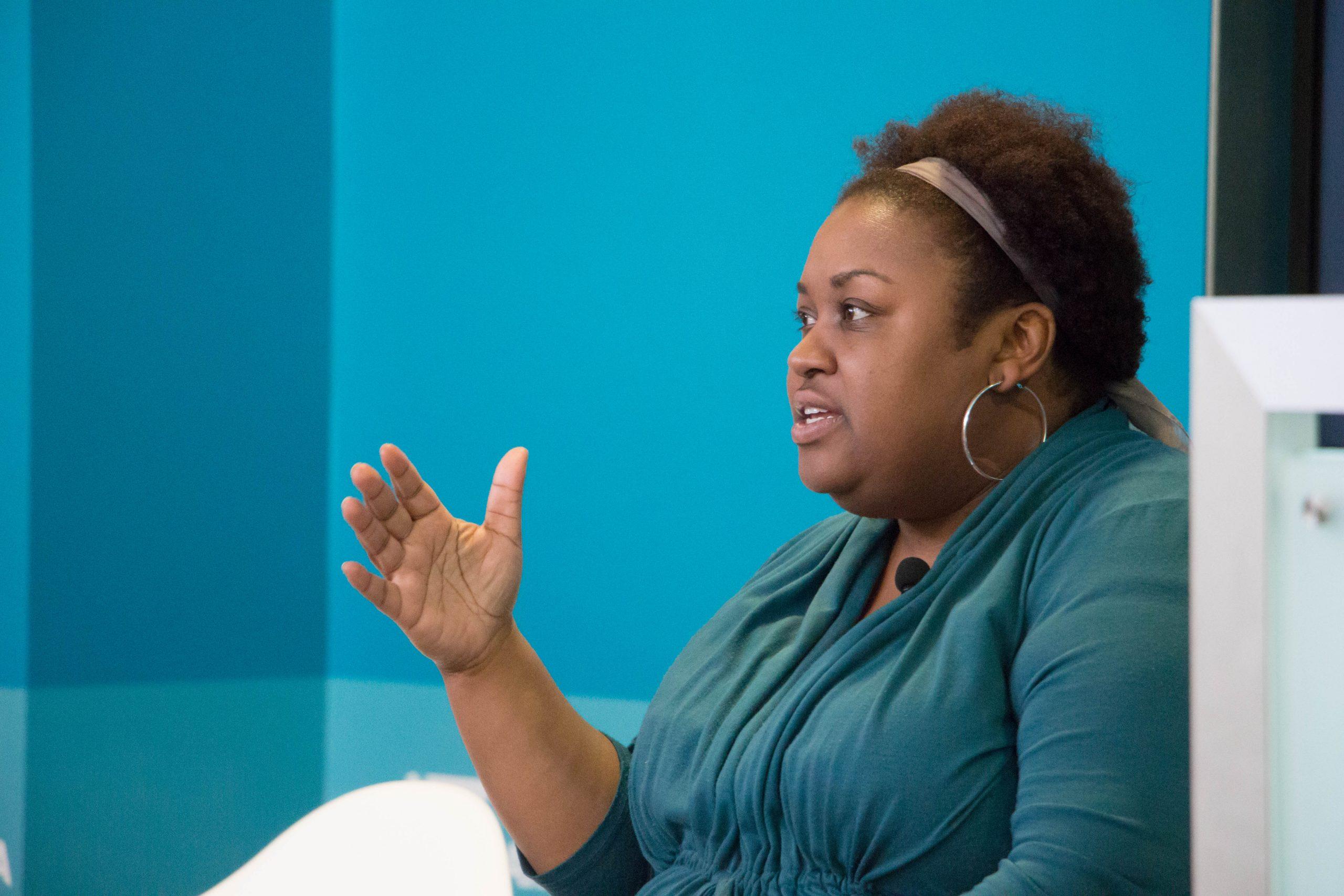Author and black feminist Brittney Cooper gave her lecture, “Respectability. Ratchetness. Rage.” on Feb. 13 in Carswell to approximately 60 students and community members. She is an associate professor of Women’s and Gender Studies and Africana Studies at Rutgers University. She is also a prolific author, a co-founder of the Crunk Feminist Collective Blog and a contributor at Cosmopolitan. Her commentary has been highlighted on platforms ranging from the TED Talk stage to The New York Times.
The speech served as the Anna Julia Cooper Annual Lecture, which has brought prominent thinkers to speak about the intersections of race, gender and place since 2012. Led by Dr. Melissa Harris Perry, the Anna Julia Cooper Center at Wake Forest University is an interdisciplinary center named for Anna Julia Cooper, a prominent intellectual from the late 19th century whose work as a scholar and educator drew attention to intersections of race and gender.
Cooper presented examples of black female thinkers and activists who worked to “articulate a new set of possibilities for black living and black thriving,” evoking sympathetic murmurs and laughter from the audience throughout.
Although her lecture was sweeping and nuanced, it ultimately spoke to the desire for black people to be able to be “fully human,” as well as the power of black women calling attention to themselves on their own terms.
“Part of what I want to make clear is that the problems that feel new to us are really very old,” Cooper said.
Her talk comes at a time of increased racial tensions and conversations about race in America. The Black Lives Matter movement began in 2013 with the acquittal of Trayvon Martin’s killer and the death of Michael Brown in Ferguson, MO. The movement has made efforts to include black queer and trans people, although ideas about gender vary across generations. At Wake Forest, a video of a student using a racial slur to refer to a Resident Advisor in late January has sparked a similar conversation about race on campus.
In her lecture, Cooper used research from her 2017 book Beyond Respectability: The Intellectual Thought of Race Women to discuss two ideas of how black people have chosen to present themselves over time. Cooper discussed respectability politics and ratchetness, and where rage fits into these ways of being.
Respectability politics — the self-policing and self-improvement of black people — emerged in the late 19th and early 20th centuries after the abolition of slavery. Cooper contrasted respectability politics with ratchetness: “a range of African-American working-class practices that emerge from the South” in the late twenty-first century that find “their articulation in excess.”
Ultimately, there is “no respectable way to get at the meat of this struggle,” Cooper said. She used Beyonce’s 2016 album Lemonade as an example of a black woman displaying herself on her own terms and of what she called “disrespectability politics.”
“Space is the crunk place, the percussive place, and the place that makes noise and music, the place that moves us and the place that offers possibility in the midst of two impossible extremes,” Cooper said.
Cooper connected these ideas to students at Wake Forest. She remarked that black students may sometimes feel “on display” at Wake Forest, where the student population is 72 percent white. She reminded black students that “we can gaze upon others too and we can determine the terms by which our bodies get to be made spectacles.”
Cooper left the podium during the question and answer portion of the event, moving closer to the audience. First-year divinity school student Donnecia Brown told Cooper that her lecture was “affirming,” later noting in an interview that the contributions of black women to their communities are “a truth that’s not spoken enough.”
Junior Brianna Reddick echoed Brown’s sentiment of appreciation.
“There is a shared idea that everyone at Wake is smart,” Reddick wrote. “But black students are regularly forced into proving their intelligence and defending their right to be here.”













